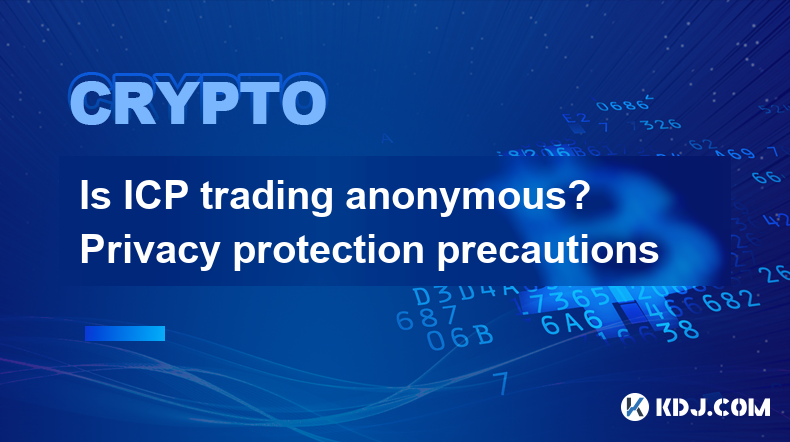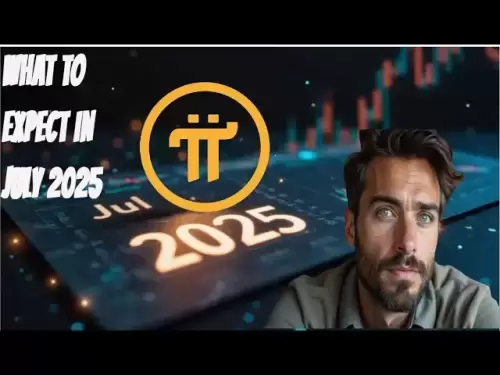-
 Bitcoin
Bitcoin $106,731.2224
-1.05% -
 Ethereum
Ethereum $2,444.9804
-1.20% -
 Tether USDt
Tether USDt $1.0003
0.01% -
 XRP
XRP $2.1882
0.09% -
 BNB
BNB $651.1435
-0.61% -
 Solana
Solana $148.3252
-2.09% -
 USDC
USDC $1.0000
0.01% -
 TRON
TRON $0.2787
0.55% -
 Dogecoin
Dogecoin $0.1598
-3.16% -
 Cardano
Cardano $0.5520
-2.43% -
 Hyperliquid
Hyperliquid $39.0960
-2.64% -
 Bitcoin Cash
Bitcoin Cash $516.9519
2.98% -
 Sui
Sui $2.7011
-2.95% -
 Chainlink
Chainlink $13.0582
-1.71% -
 UNUS SED LEO
UNUS SED LEO $8.9250
-2.53% -
 Stellar
Stellar $0.2359
-0.18% -
 Avalanche
Avalanche $17.3856
-3.73% -
 Toncoin
Toncoin $2.8095
-3.56% -
 Shiba Inu
Shiba Inu $0.0...01121
-1.95% -
 Litecoin
Litecoin $85.2795
-0.85% -
 Hedera
Hedera $0.1471
-2.15% -
 Monero
Monero $319.8004
1.12% -
 Dai
Dai $1.0001
0.01% -
 Ethena USDe
Ethena USDe $1.0001
0.02% -
 Bitget Token
Bitget Token $4.5344
-1.07% -
 Polkadot
Polkadot $3.3224
-2.96% -
 Uniswap
Uniswap $6.9697
-2.75% -
 Aave
Aave $266.1658
-2.25% -
 Pepe
Pepe $0.0...09414
-3.41% -
 Pi
Pi $0.4913
-3.29%
Is ICP trading anonymous? Privacy protection precautions
ICP trading isn't fully anonymous due to KYC on centralized exchanges; use DEXs, privacy wallets, VPNs, and split transactions to enhance privacy.
May 04, 2025 at 02:14 pm

Is ICP trading anonymous? Privacy protection precautions
Trading in the cryptocurrency space, particularly with tokens like the Internet Computer Protocol (ICP), raises significant questions about anonymity and privacy. Many users are drawn to cryptocurrencies for their potential to conduct transactions without revealing personal information. However, the extent to which trading ICP can be considered anonymous, and the precautions one must take to protect their privacy, are critical considerations. This article delves into the anonymity of ICP trading and outlines the essential privacy protection measures users should implement.
Understanding Anonymity in ICP Trading
ICP, or Internet Computer Protocol, is a blockchain-based platform designed to run decentralized applications (dApps) directly on the internet. While the blockchain technology underlying ICP offers some degree of anonymity, trading ICP on exchanges can compromise this privacy. Exchanges typically require users to undergo Know Your Customer (KYC) processes, which involve submitting personal identification documents. This means that while the blockchain transactions themselves may be pseudonymous, the entry and exit points on exchanges are not.
To understand the level of anonymity in ICP trading, it's important to differentiate between on-chain and off-chain activities. On-chain transactions refer to the movements of ICP tokens on the blockchain, which are pseudonymous as they are linked to wallet addresses rather than real identities. Off-chain activities, such as trading on centralized exchanges, often require personal information, reducing the anonymity of the trader.
Risks to Anonymity When Trading ICP
When trading ICP, users face several risks to their anonymity:
- KYC Requirements: As mentioned, most centralized exchanges require users to complete KYC procedures, which can link their real-world identities to their trading activities.
- Transaction Tracking: Even though blockchain transactions are pseudonymous, sophisticated blockchain analysis tools can sometimes trace the flow of funds and link different wallet addresses to the same user.
- Data Leaks: Exchanges and other platforms can be vulnerable to data breaches, which can expose user information to malicious actors.
These risks highlight the importance of taking proactive steps to protect one's privacy when trading ICP.
Privacy Protection Precautions for ICP Trading
To enhance the anonymity of ICP trading, users can adopt several privacy protection measures:
- Use Decentralized Exchanges (DEXs): DEXs do not require KYC and allow users to trade directly from their wallets, increasing the anonymity of transactions. Examples of DEXs that support ICP trading include Uniswap and SushiSwap.
- Utilize Privacy-Focused Wallets: Wallets like Wasabi Wallet or Samourai Wallet offer features such as coin mixing, which can help obscure the trail of transactions.
- Employ VPNs and Tor: Using a Virtual Private Network (VPN) or the Tor network can mask your IP address when accessing trading platforms, adding an extra layer of privacy.
- Split Transactions: Instead of conducting large transactions, consider splitting them into smaller amounts across multiple wallets to make tracking more difficult.
- Avoid Reusing Addresses: Always generate new wallet addresses for each transaction to prevent linking different transactions to the same user.
Step-by-Step Guide to Enhancing Anonymity in ICP Trading
Here is a detailed guide on how to enhance your anonymity when trading ICP:
Choose a Decentralized Exchange:
- Visit a DEX website such as Uniswap or SushiSwap.
- Connect your non-custodial wallet (e.g., MetaMask) to the DEX.
- Swap your ICP tokens directly from your wallet without needing to submit personal information.
Set Up a Privacy-Focused Wallet:
- Download and install a privacy-focused wallet like Wasabi Wallet.
- Follow the wallet's instructions to set up a new wallet.
- Use the wallet's coin mixing feature to obscure the origins of your ICP tokens before trading.
Use a VPN or Tor:
- Download and install a reputable VPN service or the Tor browser.
- Connect to the VPN or open the Tor browser before accessing any trading platforms.
- Conduct your trading activities while connected to the VPN or Tor to mask your IP address.
Split Transactions and Use Multiple Wallets:
- Create multiple wallets for your ICP tokens.
- Instead of transferring a large amount of ICP in one transaction, split it into smaller amounts and send them to different wallets.
- Use these wallets to trade on DEXs, ensuring that no single wallet is linked to a large volume of transactions.
Generate New Addresses for Each Transaction:
- Within your wallet, generate a new receiving address for each transaction.
- Use these new addresses to receive and send ICP tokens, reducing the likelihood of transactions being linked to the same user.
The Role of Blockchain Analysis in Compromising Anonymity
Despite the measures taken to enhance anonymity, blockchain analysis remains a significant threat. Companies specializing in blockchain analytics, such as Chainalysis and Elliptic, use sophisticated algorithms to trace the flow of cryptocurrencies across the blockchain. These firms can often identify patterns and link seemingly unrelated transactions to the same individual or entity.
To mitigate the risks posed by blockchain analysis, it's crucial to understand how these tools work and to employ advanced privacy techniques. For instance, using tumblers or mixers can help break the trail of transactions, making it more difficult for analysts to follow the money.
Legal and Regulatory Considerations
While enhancing anonymity in ICP trading is possible, it's important to be aware of the legal and regulatory landscape. Different jurisdictions have varying regulations regarding cryptocurrency trading and privacy. In some countries, using VPNs or privacy-focused wallets might be subject to legal scrutiny, especially if they are used to facilitate illegal activities.
To ensure compliance with local laws, users should research the regulations in their area and consider consulting with a legal professional. Balancing anonymity with legal compliance is essential to avoid potential legal repercussions.
Frequently Asked Questions
Q: Can I trade ICP anonymously on centralized exchanges?
A: Trading ICP on centralized exchanges is not typically anonymous due to KYC requirements. These exchanges collect personal information to comply with anti-money laundering (AML) and counter-terrorism financing (CTF) regulations. To trade more anonymously, consider using decentralized exchanges that do not require KYC.
Q: How effective are VPNs in protecting my privacy when trading ICP?
A: VPNs can significantly enhance your privacy by masking your IP address, making it more difficult for third parties to track your online activities. However, they are not foolproof, and additional measures such as using Tor and privacy-focused wallets should be considered for maximum privacy.
Q: Are there any risks associated with using privacy-focused wallets for ICP trading?
A: While privacy-focused wallets can enhance your anonymity, they also come with risks. These include potential vulnerabilities in the wallet software, the possibility of the wallet service being shut down, and the risk of attracting unwanted attention from authorities or hackers due to the perceived anonymity.
Q: How can I ensure the security of my ICP tokens while maintaining anonymity?
A: To ensure the security of your ICP tokens while maintaining anonymity, use hardware wallets for cold storage, enable two-factor authentication (2FA) on all accounts, and regularly update your wallet software. Additionally, avoid sharing your private keys and be cautious of phishing attempts.
Disclaimer:info@kdj.com
The information provided is not trading advice. kdj.com does not assume any responsibility for any investments made based on the information provided in this article. Cryptocurrencies are highly volatile and it is highly recommended that you invest with caution after thorough research!
If you believe that the content used on this website infringes your copyright, please contact us immediately (info@kdj.com) and we will delete it promptly.
- Altcoins in June 2025: Data, Trends, and What's Next for Crypto
- 2025-07-01 21:30:12
- SUI Price Breakout Watch: Will 2025 Forecasts Hit the Mark?
- 2025-07-01 21:30:12
- BTCBULL: Riding Bitcoin's Bull Run to Crypto Glory
- 2025-07-01 20:30:11
- DOJ Cracks Down: North Korea's Crypto Theft Ring Exposed
- 2025-07-01 20:50:11
- Bitcoin's July Jolt: Will We See a New ATH?
- 2025-07-01 20:30:11
- Bitcoin Cash Price Surges to 8-Month High: Is $1,700 Next?
- 2025-07-01 20:35:12
Related knowledge

How to customize USDT TRC20 mining fees? Flexible adjustment tutorial
Jun 13,2025 at 01:42am
Understanding USDT TRC20 Mining FeesMining fees on the TRON (TRC20) network are essential for processing transactions. Unlike Bitcoin or Ethereum, where miners directly validate transactions, TRON uses a delegated proof-of-stake (DPoS) mechanism. However, users still need to pay bandwidth and energy fees, which are collectively referred to as 'mining fe...

USDT TRC20 transaction is stuck? Solution summary
Jun 14,2025 at 11:15pm
Understanding USDT TRC20 TransactionsWhen users mention that a USDT TRC20 transaction is stuck, they typically refer to a situation where the transfer of Tether (USDT) on the TRON blockchain has not been confirmed for an extended period. This issue may arise due to various reasons such as network congestion, insufficient transaction fees, or wallet-rela...

How to cancel USDT TRC20 unconfirmed transactions? Operation guide
Jun 13,2025 at 11:01pm
Understanding USDT TRC20 Unconfirmed TransactionsWhen dealing with USDT TRC20 transactions, it’s crucial to understand what an unconfirmed transaction means. An unconfirmed transaction is one that has been broadcasted to the blockchain network but hasn’t yet been included in a block. This typically occurs due to low transaction fees or network congestio...

How to check USDT TRC20 balance? Introduction to multiple query methods
Jun 21,2025 at 02:42am
Understanding USDT TRC20 and Its ImportanceUSDT (Tether) is one of the most widely used stablecoins in the cryptocurrency market. It exists on multiple blockchain networks, including TRC20, which operates on the Tron (TRX) network. Checking your USDT TRC20 balance accurately is crucial for users who hold or transact with this asset. Whether you're sendi...

What to do if USDT TRC20 transfers are congested? Speed up trading skills
Jun 13,2025 at 09:56am
Understanding USDT TRC20 Transfer CongestionWhen transferring USDT TRC20, users may occasionally experience delays or congestion. This typically occurs due to network overload on the TRON blockchain, which hosts the TRC20 version of Tether. Unlike the ERC20 variant (which runs on Ethereum), TRC20 transactions are generally faster and cheaper, but during...

The relationship between USDT TRC20 and TRON chain: technical background analysis
Jun 12,2025 at 01:28pm
What is USDT TRC20?USDT TRC20 refers to the Tether (USDT) token issued on the TRON blockchain using the TRC-20 standard. Unlike the more commonly known ERC-20 version of USDT (which runs on Ethereum), the TRC-20 variant leverages the TRON network's infrastructure for faster and cheaper transactions. The emergence of this version came as part of Tether’s...

How to customize USDT TRC20 mining fees? Flexible adjustment tutorial
Jun 13,2025 at 01:42am
Understanding USDT TRC20 Mining FeesMining fees on the TRON (TRC20) network are essential for processing transactions. Unlike Bitcoin or Ethereum, where miners directly validate transactions, TRON uses a delegated proof-of-stake (DPoS) mechanism. However, users still need to pay bandwidth and energy fees, which are collectively referred to as 'mining fe...

USDT TRC20 transaction is stuck? Solution summary
Jun 14,2025 at 11:15pm
Understanding USDT TRC20 TransactionsWhen users mention that a USDT TRC20 transaction is stuck, they typically refer to a situation where the transfer of Tether (USDT) on the TRON blockchain has not been confirmed for an extended period. This issue may arise due to various reasons such as network congestion, insufficient transaction fees, or wallet-rela...

How to cancel USDT TRC20 unconfirmed transactions? Operation guide
Jun 13,2025 at 11:01pm
Understanding USDT TRC20 Unconfirmed TransactionsWhen dealing with USDT TRC20 transactions, it’s crucial to understand what an unconfirmed transaction means. An unconfirmed transaction is one that has been broadcasted to the blockchain network but hasn’t yet been included in a block. This typically occurs due to low transaction fees or network congestio...

How to check USDT TRC20 balance? Introduction to multiple query methods
Jun 21,2025 at 02:42am
Understanding USDT TRC20 and Its ImportanceUSDT (Tether) is one of the most widely used stablecoins in the cryptocurrency market. It exists on multiple blockchain networks, including TRC20, which operates on the Tron (TRX) network. Checking your USDT TRC20 balance accurately is crucial for users who hold or transact with this asset. Whether you're sendi...

What to do if USDT TRC20 transfers are congested? Speed up trading skills
Jun 13,2025 at 09:56am
Understanding USDT TRC20 Transfer CongestionWhen transferring USDT TRC20, users may occasionally experience delays or congestion. This typically occurs due to network overload on the TRON blockchain, which hosts the TRC20 version of Tether. Unlike the ERC20 variant (which runs on Ethereum), TRC20 transactions are generally faster and cheaper, but during...

The relationship between USDT TRC20 and TRON chain: technical background analysis
Jun 12,2025 at 01:28pm
What is USDT TRC20?USDT TRC20 refers to the Tether (USDT) token issued on the TRON blockchain using the TRC-20 standard. Unlike the more commonly known ERC-20 version of USDT (which runs on Ethereum), the TRC-20 variant leverages the TRON network's infrastructure for faster and cheaper transactions. The emergence of this version came as part of Tether’s...
See all articles

























































































